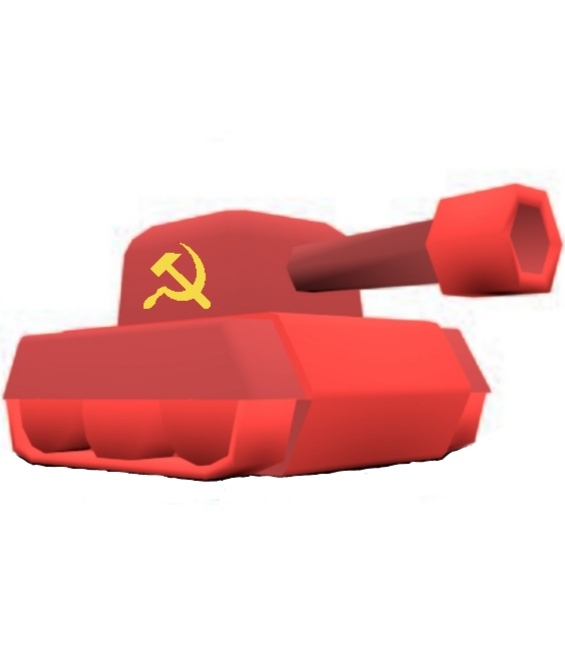“Those who come with wheat, millet, corn or milk, they are not helping us. Those who really want to help us can give us ploughs, tractors, fertilizers, insecticides, watering cans, drills and dams. That is how we would define food aid.” - Sankara
What China can do is help developing nations build out infrastructure and transfer technology to these nations to help them bootstrap their domestic industries. And this is precisely what China has been doing with great success.
It's always up to the people of the country to improve their own situation, and communism cannot be imposed on them externally. However, countries can help improve material conditions and alleviate the suffering. This is what China does.
Exactly, ultimately what China does is improve the material conditions of plundered global south countries so they're more likely to take the revolutionary road. China learned from the URSS post-Stalin awful foreign policy.
Please refrain from arguing in bad faith. If you disagree with someone, ask questions and clarify your position. You're in a dedicated community so don't assume that people are just going around saying stupid things out of their asses.
Who's actually assuming China is bringing socialism by building infrastructure? It's about building productive forces, who else is doing that? Feels pretty insulting to call is a "China simp community"
The "mindset" of the people of these countries is a result of their current stage of development, to get out of that "mindset" they need to develop their productive forces, sure they can do it by "pulling yourself up by your bootstraps" but its going to take much longer than with the help of China.
Okay it's obvious you have not read theory. Through the lens of historical materialism, aka the material conception of history developed with dialectics, we reached the conclusion that production is the chief determinant force of development, quantitative changes in production lead to qualitative changes in society.
The "mindset" from these underdeveloped countries is precisely a product of their underdevelopment, not the other way around like you imply. That is the reason we support China policies on developing global south infrastructure, because developing the productive forces (the instruments and people who carry on production) IS the way to develop society. It is not because we are blindly "chinese simps".
Obligatory book recomendation, "Historical and dialectical materialism" by Stalin.
Changing material conditions to foster the development of a proletarian class is a solid theory of how to build working class power and consciousness. You might deride it as just infrastructure, but the workers who maintain and transport goods on that infrastructure (as well as the people who provide goods and services to those workers, and so on and so forth) now have more economic power and ability to organize in solidarity with each other than subsistence farmers would have against their landlords. And before anyone can build, say, a tractor factory, there must first be adequate infrastructure to supply said factory and take its finished goods to internal as well as potentially foreign markets.
Developing the productive forces is the way forward for any nation, China is providing help in that regard with mutually benefitial arrangements.
No but we must be critical of every policy like this, if its not followed by tools and know-how, its just bribery/political capital.
Let us consider that every ton of food sent as humanitarian aid by Russia is a ton of food not purchased from the US. Every ton of food not purchased from the US is x dollars that did not have to be either borrowed (with conditions including economic restructuring) or earned by selling goods and industries at pennies on the dollar to Western consumers. It does not solve the issue of developing productive forces in the target nations, but its impact is more anti-imperial than it might initially appear.
To be fair- Russia's industrial capacity is not what it once was- and what remains, is geared towards something else entirely at the moment. China can provide the ploughs and tractors and infrastructure, wheat (and oil) is what Russia has the means to provide the world, currently.
Part of the whole "shock therapy" was specifically around destroying Russia's own indigenous means of producing these things (manufactured goods like tractors) and making it dependent on western industry instead.
I know, but if aid does not come with the machinery+know-how to prevent future crisis, it is not aid but bribery.
No offense, but this kind of criticism is kind of tone deaf.
First of all, it is the World Bank that explicitly forbids the developing world from achieving food self-sufficiency and forces them to plant export crops, in exchange for the dollars needed to import essential consumables such as fuel and food.
Second, much of the agricultural technologies and machineries are Western made, and Russia cannot simply just give away what little they have. Yes, Belarus is ramping up tractor production, for example, but it’s going to take years.
Third, re-implementing agricultural policy takes years if not decades to bear fruits, and that’s taking into account the economic structure of the country (how much to export to earn dollar to repay their debt?) and the specific climate of the region (yield can be highly variable).
Fourth, and a very important point, the DPRK did try to implement a food self-sufficiency policy starting in the 1970s, and the result was unfortunately a failure (even though it saw a good deal of success for the first 20 years). The harsh climate conditions as well as the lack of arable land in the Korean peninsular simply did not allow large scale agricultural success in the long term. The famines caused by devastating weather in 1994-1995 - freeze, floods and drought all happening in the same decade - directly contributed to the famine in the DPRK (The March of Suffering) in the 1990s, together with the loss of fuel import and export market from the collapse of the USSR.
The DPRK took decades and spent 20% of their GDP on agriculture, and it proved to be a very difficult task to achieve, however courageous it was. South Korea, on the other hand, simply cheated by importing their food and spend only 2% of their GDP on agriculture. The point being that not every country has the condition to achieve high level of agricultural production, and in a socialist union you will have some countries that have the advantage to supply large quantity of food to the other countries.
And now, as these poor African countries are experiencing from severe energy and food crisis, directly caused by Western imperialism, having immediate relief, even if it’s temporary, is a much needed measure and while there is certainly political motivation behind it. It’s absurd to think that the poorest countries should just deny such aid for dignity reasons.





